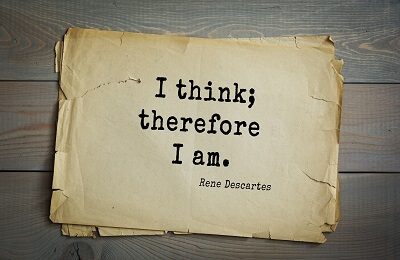‘Congruence’ simply means that two or more things agree, coincide, or ‘fit’ together. If you’re going to set powerful, effective goals – goals that make a future – they must be in tune with who you are.
Supporters or saboteurs?
You want your deepest needs, values and passions to be working for your success – not against it. If you go after something you don’t ‘really’ want ‘deep down’ (and many people find themselves doing exactly this, sometimes for a whole lifetime) you will find ways to hold yourself back and to sabotage yourself. And you will feel uncomfortable: maybe not horribly uncomfortable, because we’re pretty good at fooling ourselves that not-being-happy is the normal state of affairs – but certainly vaguely and naggingly uncomfortable.
You may develop your skills in areas which are more or less incongruent with your psychological preferences (I call this ‘learning to like your dislikes’, and we cover it later in the programme), so that you can apply them as required by specific situations. But attempting to suppress your preferences and values altogether is likely to be exhausting – and ultimately unsuccessful.
We all know the story of the guy who struggles through law school to please his father by making a good career: Hollywood is built on it! In the end, he has to admit that all along he really wanted to be a [fill in the gap for yourselves…] Or think of the hit British film Billy Elliot: the boy who snuck out of boxing lessons to take ballet. It’s a truism that ‘we have to follow our heart’ – but how many of us do it? Or know how to go about it?
What do we want?
Various psychological theories have sought to identify innate (arguably, universal) human needs. There is general agreement that all human beings require (in order of immediate importance):
• Safety/security (including basic physiological needs for shelter, food and rest)
• Affiliation (relationship, love and esteem needs) and
• Self-actualization (growth towards the fulfillment of one’s personal potential).
Abraham Maslow, one of the first and best-known ‘need theorists’, wrote the following lines.
A musician must make music
An artist must paint
A poet must write
If he is to ultimately
Be at peace with himself…
I’ve suggested that any success goals we set need to be:
• Based on the twin outcomes of happiness and usefulness
• Of benefit to ourselves, our families and (if possible) other people
• Tending towards our growth, or the development of our untapped potential
• Positive in intent.
These four criteria alone will ensure that our goals are basically congruent with innate human needs, ensuring that the journey will be fulfilling and worthwhile – while we figure out what else we really want!
The benefits of congruence
Looking back at the three innate human needs, I’d like to suggest that setting success goals that are congruent with your core values offers some key benefits in each area.
• Congruence offers security – ensuring that our basic needs aren’t swept under the carpet.
• Congruence supports relationship – ensuring that others’ needs are factored into our plans.

• Congruence powers motivation – enlisting the support of our inner ‘drives’, rather than having them undermine and sabotage our goals.
• Congruence shapes strategy – helping us to find ‘best fit’ strategies that get us to our goals in ways that build on our strengths and preferences: we don’t have to beat our heads against the wall trying to be something we’re not.
Ecology Check
As you come to set specific success goals, let me encourage you to look at them – not just in light of the rewards on offer for success, but in light of the ‘ecology’ of the whole situation: the anticipated effect of your plans on other areas of your life and the people around you.
• What will you have to do – and give up – to achieve your goal?
• What will be the effect on you?
• What will be the effect on other people and your relationships with them?
• What will you gain – and lose?
• Will it be worth it?
This is basically a cost-benefit analysis: not just for you, but for others – and your life as a whole. You are looking to find your own authentic voice and path. The good news is: this doesn’t mean throwing out everything you know and value. It doesn’t mean going it alone and alienating those you love along the way – although you may have to separate yourself from people whose conflicting values would hold you back, and it’s worth facing this possibility from the start.
Finding your own authentic path means finding what will make you happy – knowing that such a path must embrace what you value and those you love. It is a path with heart.
>>> Coming Next: What Makes Goals Powerful?
Please note: This is an extract from the Signposts for Success – it may not contain the exercises from the full version of the book/audio set, for full version please contact us or follow our blog for more.
Thank you,
The team@Custodian


